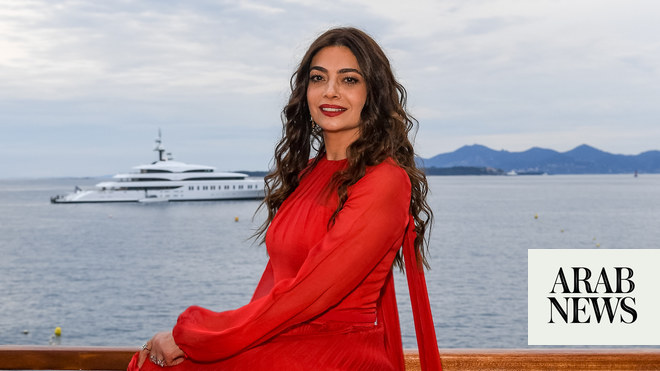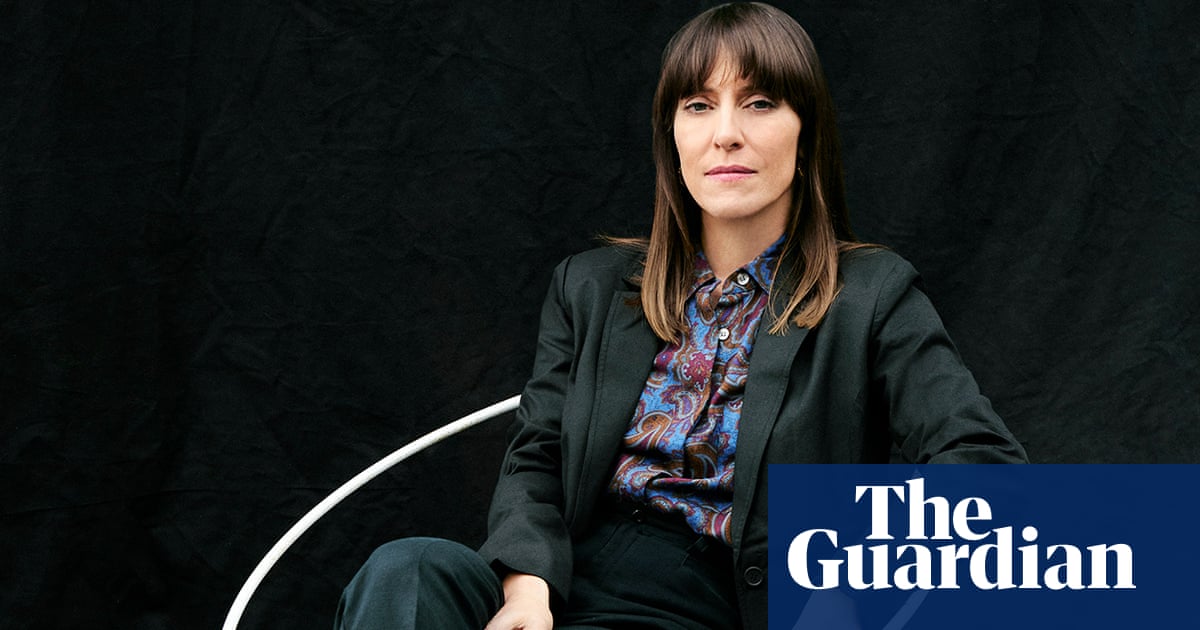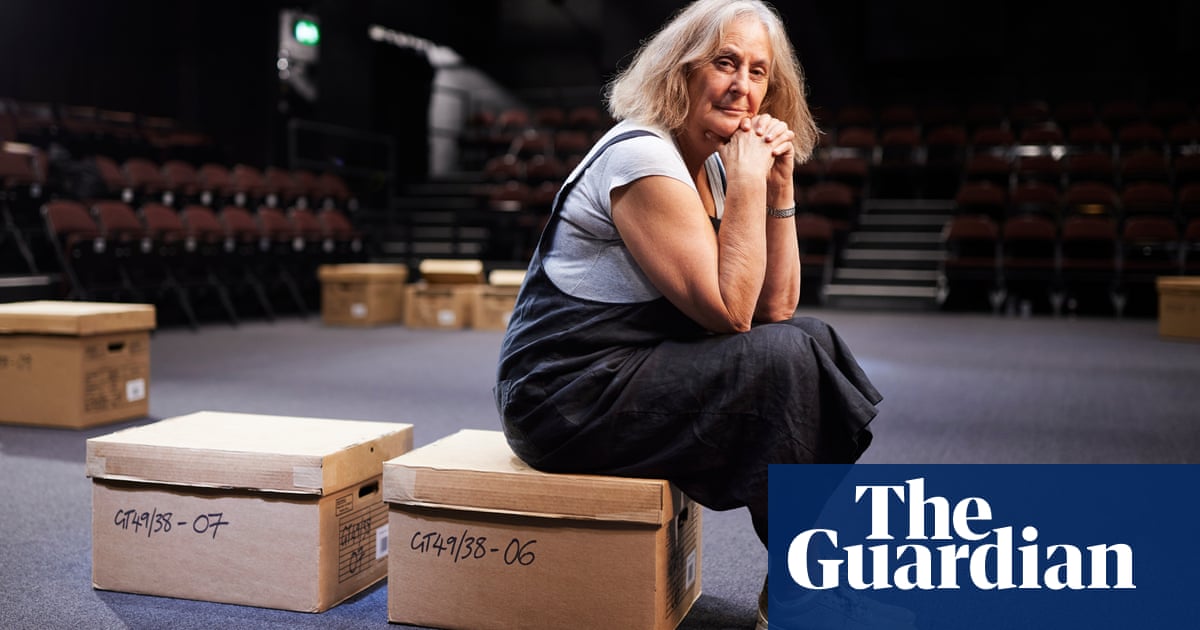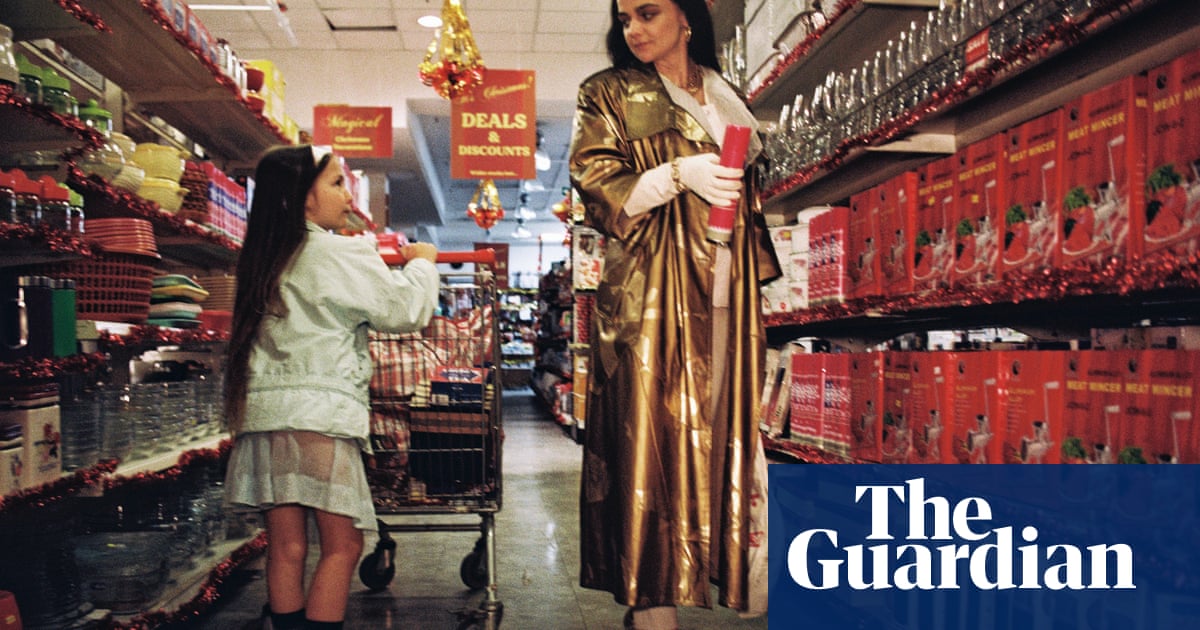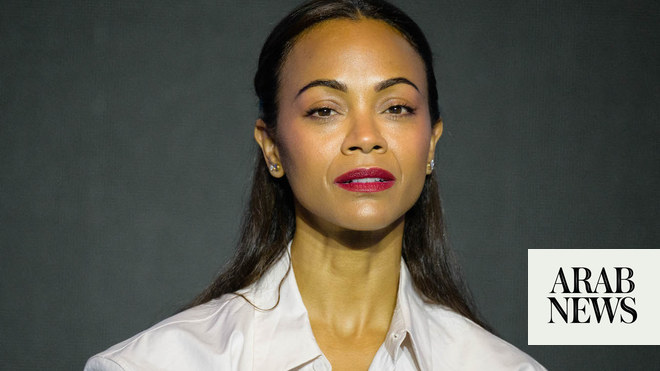
DUBAI: It’s always the people who feel they fit in nowhere that ultimately fit in everywhere. American actress Zoe Saldana was once rejected from role after role precisely because she didn’t fit the archaic image of what a ‘true’ movie star looked like. Now, aged 44, she has starred in the top three highest grossing films of all time — “Avengers: Endgame,” “Avatar,” and “Avatar: The Way of Water” — making her undeniably a global icon. She got there by never forgetting the lesson her mother taught her: The diversity within you is what makes you rich.
For the latest updates, follow us on Instagram @arabnews.lifestyle
“My mother raised us always telling us: ‘Yes, you are who you want to be — but you’re also global citizens,” Saldana, whose mother is part Lebanese, tells Arab News. “She did that with the purpose of always nourishing our curiosity for culture, because that’s where we consider ourselves to be affluent.”
Knowing she had so much heritage within her excited the young Saldana, who grew up in a cramped two-bedroom, one-bathroom apartment in Queens, New York with her parents and two sisters. She had so much culture within her, and she and her siblings were all taught to learn not only about their own backgrounds, but those of everyone they met.
“We may not be scholars or academics, but I come from a family that sits down with people. They’re very interested in knowing who this person is and where they come from, and breaking bread with that person. That’s what it’s like to be Arab. That’s what it’s like to be Latina. I don"t see life any other way,” Saldana continues.
For years, however, exploring the globe outside of books and movies was just a dream for Saldana, who is currently following up the gargantuan “Avatar: The Way of Water” by returning to the role of Gamora in “Guardians of the Galaxy Vol 3,” released May 4 across the Middle East. As a kid, she was mostly sheltered, forced to escape into the fantasy worlds created by the same people whose films she now anchors.
“Nine months out of the year, the streets of New York were either super-dangerous or very cold. We had books, we had “The Terminator,” we had “Aliens,” we had “Dune” and “Blade Runner.” I had Sigourney Weaver, Linda Hamilton and Whoopi Goldberg as my heroes. I transported myself to all these places, and I became all these people,” says Saldana.
As a teen, Saldana discovered that the same impulses that kept her entertained as a child translated easily into the skill of performance, with her standout turns in youth theater groups in New York catching the eye of a top talent agency and stamping an instant ticket to stardom. Or so they thought.
In many rooms, sadly, her talent wasn’t enough to overcome the deeply ingrained bigotry and racism of the film industry. Her multicultural makeup, which she knew to be her strength, was perceived by the business as a weakness. For years, she didn’t quite know how to process it.
“Every time I was excited to get a script, and I would say, ‘Oh my gosh, I got this audition for this amazing thing!’ And this filmmaker and the casting director would want to meet me. I would then learn everything; I would spend all this anxiety and panic trying to do a good job. And I would get there, and I would nail the audition,” says Saldana. “Then I would get that heartbreaking phone call saying ‘You were the best person that he saw. But he"s going to go traditional.’ As if I fit outside of something that is considered normal.”
While Saldana was a clear standout in her early projects, including 2000’s “Center Stage,” 2002’s “Crossroads,” and 2003’s “Pirates of the Caribbean: Curse of the Black Pearl,” she was unable to become a traditional leading woman, suffocated by the structural barriers that she knew would close in on her if she let them.
“I had a choice, five years into my acting journey: I could allow what I was being told to sink in, and spend the rest of my days trying to understand what they meant, or I could say, ‘I’m going to go where I’m wanted,’” says Saldana.
It seems like fate that the same people who created the kind of multicultural science-fiction worlds that she once imagined herself in would be the ones to see a place for her in the worlds they would create next.
“What’s magical about this whole thing is that I naturally gravitated towards these individuals that had shared experience with me in a different way. I believe that James Gunn, JJ Abrams and James Cameron had to have shared the feeling that they didn’t belong, that they fit outside the mold of what was traditional, so they made their own normal. And there was space for me there,” says Saldana.
“I’ve always loved outer space, and I love science fiction. I’m happy playing in that world. Long story short, if I can’t play different variations of myself here on earth, then give me a purple person next. I’ve never played purple — let’s see what that brings me!”
Creative spaces, of course, don’t last forever. While Saldana is currently still in the midst of filming the next three “Avatar” films with James Cameron, her time in the Marvel Cinematic Universe, it seems, is coming to an end. “Guardians of the Galaxy Vol. 3” is set to be the final film in the franchise, with writer-director James Gunn set to leave Marvel behind after taking the top job over at DC. Nevertheless, Saldana’s character of Gamora is set for a fitting send-off, as she’s morphed from the scorned daughter of the mad king Thanos into a tough-as-nails bounty hunter at the edge of the universe.
Saldana, a mother of three herself now, has been thinking about the lessons that her mother imparted to her. “You can be anything,” she told her, again and again. It’s the lesson that helped her become who she is today, and maybe through the work she’s done, she can pass the same lesson along to her own children.
“Every time we’re doing press tours, I’ve asked to have a poster signed by all the cast, so that one day — when my kids find me cool again — they can have it and know what we created together,” says Saldana.
Hopefully her kids understand what that poster signifies — that their mother, once turned away for being different, has helped create a new normal that they and millions of other kids like them will one day benefit from, showing the world that the diversity within them is their greatest strength.







